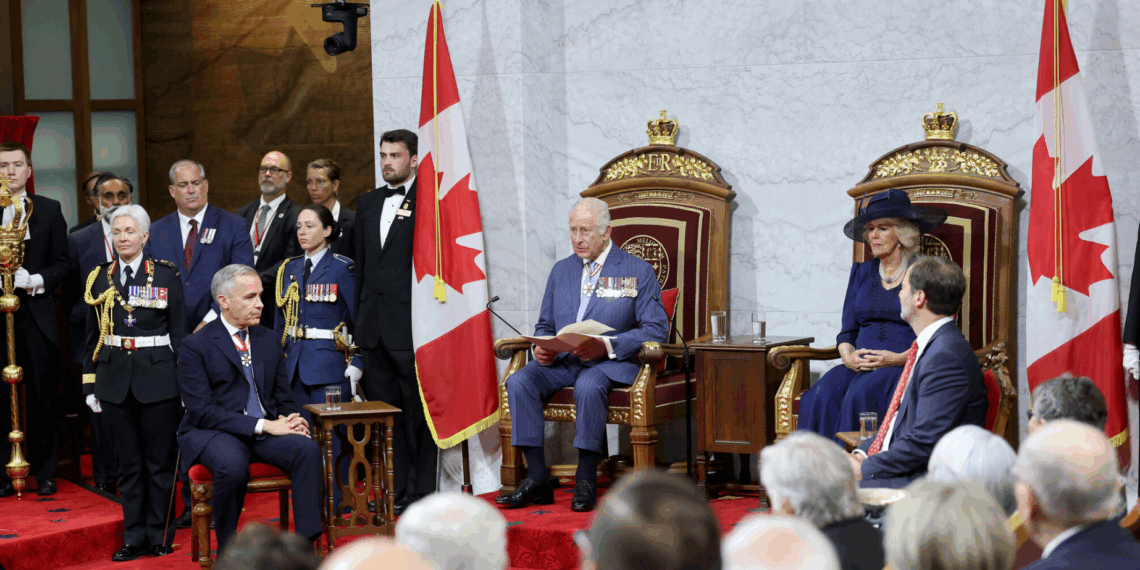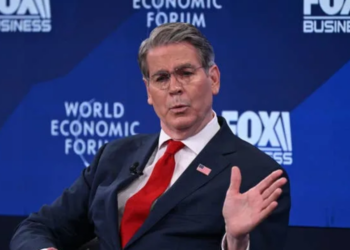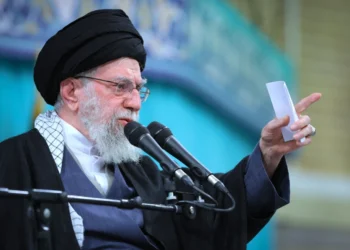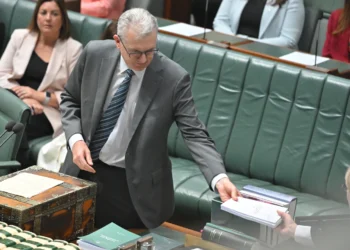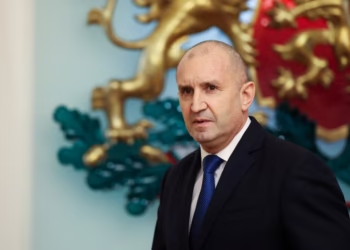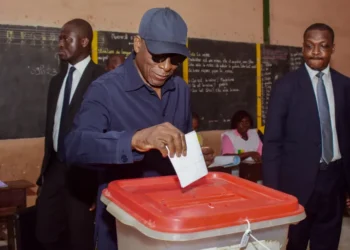OTTAWA (Realist English). King Charles III affirmed Canada’s sovereignty in a symbolic throne speech to Parliament on Tuesday, addressing lawmakers on behalf of Prime Minister Mark Carney in a moment of heightened geopolitical tension and renewed pressure from the United States.
The address, delivered in French before the Senate, underscored the dangers of the current global climate and the importance of preserving Canada’s independence.
“Since the Second World War, our world has never been more dangerous and unstable,” Charles said. “Canada is facing challenges that, in our lifetimes, are unprecedented.” He reaffirmed the country’s national motto — “The True North strong and free” — and called for deeper alignment with “a coalition of like-minded nations.”
The throne speech came just days after former U.S. President Donald Trump reiterated his proposal for Canada to become the 51st state of the United States. Though widely regarded as rhetorical provocation, the statement touched a nerve in Ottawa, where concerns are growing about the erosion of Canadian autonomy in defense and trade.
Charles’s visit — his first to Canada as monarch — lasted less than 24 hours but carried heavy symbolic weight. He met with the prime minister, laid a wreath at the National War Memorial, planted a ceremonial tree, and walked through the capital speaking with citizens.
Alongside the constitutional ceremony, the speech served as a formal declaration of policy priorities. The government pledged to protect Quebec’s cultural identity, increase military spending, reduce arms procurement from the U.S. in favor of European suppliers, and reorient its economic relationship with Washington.
“Canada is building a coalition of partners committed to international cooperation and the free exchange of ideas and goods,” Charles said in a pointed reference to recent tensions with the U.S.
Within hours, Donald Trump took to social media to restate his offer: Canada could join the U.S. missile defense program “Golden Dome” for free — but only if it “becomes our beloved 51st state.” Otherwise, he added, Ottawa would need to pay $61 billion for access.
Historians have drawn comparisons to Queen Elizabeth II’s visit to Grenada in 1985 — two years after the U.S. invasion of the island. That speech, like Charles’s in Ottawa, was seen as a subtle but unmistakable gesture of support for a former colony navigating pressure from Washington.
King Charles III has positioned the monarchy as a stabilizing diplomatic instrument in an era of geopolitical turbulence. His address in Ottawa was a layered act: a nod to Canada’s constitutional history, a veiled critique of U.S. overreach, and a rallying call for Canadian unity. Whether that symbolism translates into resilience against external pressure remains to be seen.


